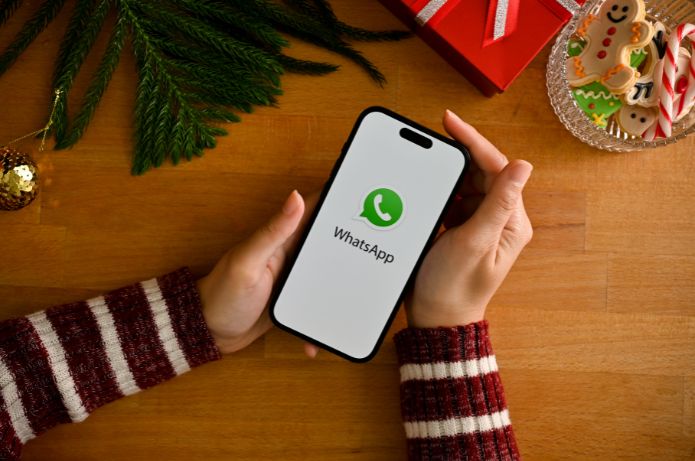Gone are the days when a good ad needed to convince the customer to click, open a website, fill out a form, and only then wait for a salesperson to contact them. Today, just two taps on the screen are enough to start negotiating, literally.
With the rise of ads featuring the ‘Click to WhatsApp’ button, or simply ‘Click for WhatsApp,’ Brazil’s most-used messaging channel has become a direct bridge between desire and purchase. Instead of redirecting the consumer to a page full of forms, clicking on a campaign on Instagram or Facebook instantly starts a direct conversation with the brand on WhatsApp. It’s fast, simple, and highly effective.
“Businesses of all sizes are discovering a new shortcut to connect with their consumers, shortening the buying journey and turning the green messenger into the new sales counter of the Brazilian internet. It’s like opening the store door with a click. The customer is right there, calling you. It’s up to you to know how to respond,” summarizes Alberto Filho, CEO of Poli Digital, a Goiás-based company specializing in customer service channel automation for SMEs.
Here’s how it works: when a user sees an ad on Instagram or Facebook, they click and, instead of being taken to a traditional landing page, they are directed straight to a WhatsApp conversation with the brand. And the impact is real. According to Opinion Box, three out of ten Brazilians expect a reply on WhatsApp within five minutes. HubSpot goes further: responding to a lead within 5 minutes can increase conversion chances by up to 21 times.
“This simplicity completely transforms the customer journey. You eliminate friction, humanize the experience, and speed up closing the sale,” summarizes Alberto Filho.
In practice, the impact is measurable. During the pandemic, Espaçolaser implemented Click to WhatsApp ads and, within three months, saw a 396% increase in WhatsApp conversions and a 137% increase in revenue on the channel. Meanwhile, the brand Reserva reported a significant improvement in ROI by integrating personalized messages, although the exact percentage wasn’t publicly disclosed.
But handling the high volume of interactions that come with this type of campaign requires more than just willingness: ‘Automation, integrated catalogs, payment links, and re-engagement tools are essential to ensure smooth service and continuity in the journey,’ explains Filho. ‘WhatsApp allows you to handle pre-sales, sales, and post-sales, all in the same channel.’ However, it’s important to note that these automations, CRMs, payment systems, and the use of Meta’s Conversions API are only possible through a specialized platform like Poli, which operates via WhatsApp’s Official API provided by Meta to BSPs (authorized partners).
Additionally, with Meta’s Conversions API already integrated into Poli’s platform, it’s possible to connect what happens on WhatsApp with the Facebook Ads dashboard. In other words: if the sale happens after the click, the system identifies it, sends the information to Meta, and optimizes campaigns based on real results, including offline. This advanced integration is only possible thanks to the use of WhatsApp’s Official API, made available exclusively to authorized partners like Poli.
‘What was once just a messaging app has become a sales channel, customer service, CRM, and post-sales tool. With opening rates far higher than email and SMS, WhatsApp has solidified itself as the preferred channel for Brazilian consumers and the most efficient for those who want to sell more,’ says the CEO of Poli Digital. He emphasizes that all this efficiency and automation is only possible thanks to the use of WhatsApp’s Official API, which enables complete and secure integration via specialized platforms like Poli.
For Alberto Filho, the secret lies in strategy: ‘It’s not just about adding a button. You need to understand how this channel integrates into the entire journey. Test, measure, adjust. And above all, be where the customer already is.’ He reinforces: ‘Because, at the end of the day, selling today is about responding fast, speaking right, and being available at the exact moment—with just one click.’


